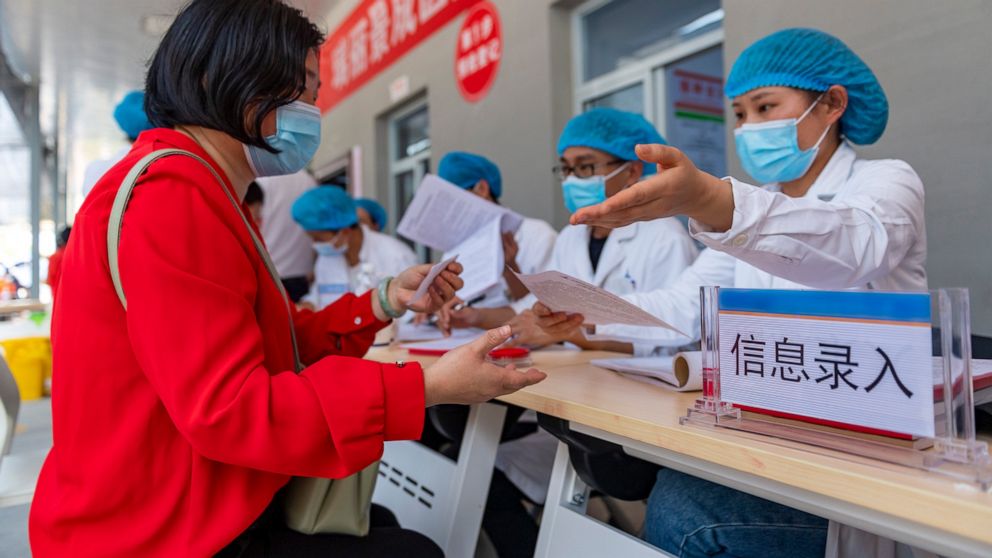
Chinese vaccine makers are looking at mixing their jabs and whether a booster shot could help better protect against COVID-19
TAIPEI, Taiwan -- Chinese vaccine makers are looking at mixing their jabs and whether a booster shot could help better protect against COVID-19.
Sinovac and Sinopharm, the two Chinese manufacturers that combined have exported hundreds of millions of doses all over the world, say they're are considering combining their vaccines with those from other companies.
Gao later tried to walk back his comments, saying he was talking in general about improving vaccine efficacy.
China National Biotech Group has a plan for future “sequential use” of their vaccines, Li Meng, the head of international cooperation for the company, said Wednesday at an international conference.
The company, a subsidiary of state-owned Sinopharm, made two inactivated COVID-19 vaccines and a third in clinical trials.
Sinovac, a private company based in Beijing, also said they were in preliminary discussions with investigators, including China’s Center for Disease Control, about combining the doses of their vaccine, CoronaVac, with others.
Sequential immunization means mixing different vaccines and it is a strategy that could boost efficacy rates, said Ashley St. John, an immunologist at Duke-NUS Medical School in Singapore.
“They are trying to tweak the schedule to really find the best point to give people’s vaccines,” St. John said. “What’s the best combination and time point?”
Sinopharm's vaccines, from its Beijing Institute of Biological Products and the Wuhan Institute of Biological Products, are 79% and 72% effective, respectively, the company said. It has not publicly revealed more data from the final stage of its clinical trials.
The practice is being considered in other countries as well. British scientists are studying a combo of the AstraZeneca and Pfizer shots. The study is also looking to test different intervals between doses, four weeks and 12 weeks apart.
The results of such investigations may have public health implications worldwide as governments around the world face delays in getting their vaccines in a timely manner and logistical hurdles in rolling out the shots.
Researchers in Brazil who conducted Sinovac’s clinical trials in the country released new data this month that reconfirmed the company’s previously announced 50% efficacy rate. The paper, which has not yet been peer reviewed but was published on a website for scientists, showed that the Sinovac vaccine was 50.7% effective against symptomatic COVID-19 cases and much stronger against severe disease.
CanSino, another Chinese company that has created an adenovirus-vector vaccine, said they were looking at the effects of a booster shot of their own vaccine six months after the first dose. The shot, which uses the same technology as the AstraZeneca shot, is 65.3% effective.
April 28, 2021 at 02:43PM
https://ift.tt/3xGtS9Q
Chinese companies considers mixing vaccines, booster shots - ABC News
https://ift.tt/2DVP6sH

No comments:
Post a Comment